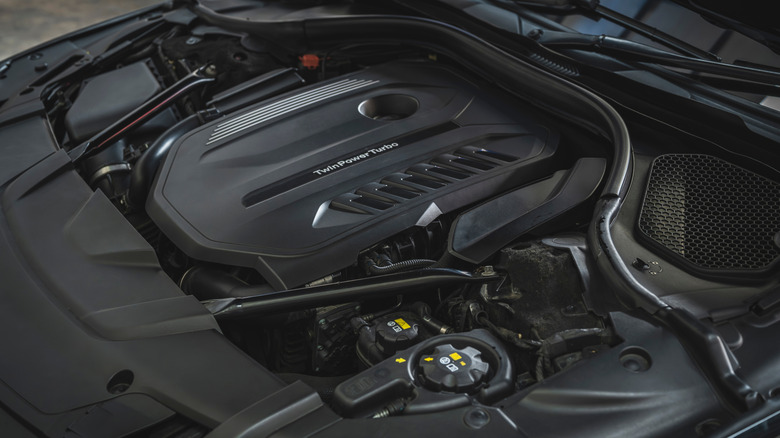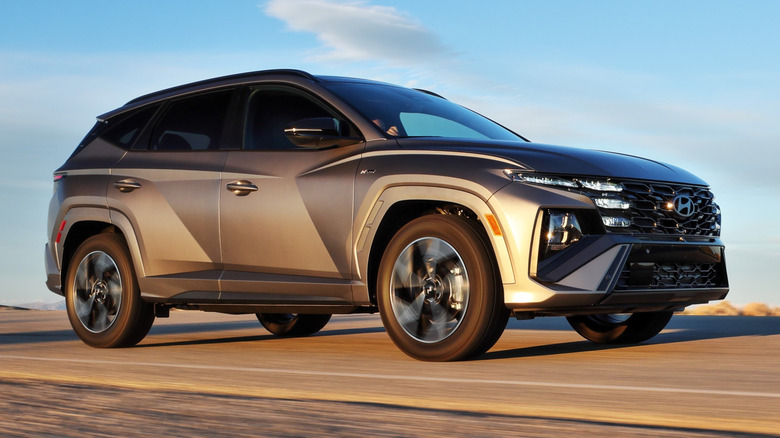4-Cylinder Engines: Here Are The Pros & Cons
Even if you're not an automotive enthusiast, you may have noticed in recent years that more and more vehicles have a four-cylinder engine under the hood, including larger cars and SUVs. Automakers have been putting big six- and eight-cylinder engines in vehicles for more than 100 years, and there's no denying that drivers love power. So what's behind the transition to smaller engines, and are drivers happy with the performance of newer four-cylinder cars?
The trend toward four-cylinder engines is mainly down to two factors: environmental regulations and cost. Four-cylinder engines are lighter and more fuel-efficient, and thus more easily meet emissions standards than their larger counterparts. They are less expensive to make and maintain and can be used in various configurations, including all-wheel drive. They are also often offered with turbocharging, giving the vehicle a boost in power.
At the time of writing, more than 60% of cars on the road today have four-cylinder engines. The sheer amount of cars on the road and on the auto lot with these size engines indicates that many drivers are satisfied with less power. This is partly because the four-cylinder engines of today are much more powerful, and well-made, than those found in cars like the notorious Chevy Vega. In fact, modern four-cylinder engines today nearly match the horsepower of the average eight-cylinder engines sold 25 years ago. That being said, some drivers find that four-cylinders are less refined or don't offer enough torque or towing power for their needs.
Four-cylinders versus larger options
The Mazda CX-30 and the Hyundai Tucson are some of the most popular four-cylinder SUVs in 2025, but there are still plenty of six-cylinder options out there — here's what buyers should consider when they're shopping. Four-cylinder engines are lightweight and typically offer better fuel efficiency, so it's a good choice if you have a long commute. As we noted earlier, many models are turbocharged, giving those smaller engines enough power to get larger, heavier vehicles moving with ease. The get-up-and-go, so to speak, should satisfy most drivers. Modern four-cylinder engines are also designed to offer mid-range torque for better acceleration, and variable valve timing and other modern additions like high-pressure direct injection and low-friction internal coatings give cars a smooth and agile ride.
What's not to like? Well, if you plan to tow a trailer or camper, you'll most likely want a more powerful engine. Some turbocharged four-cylinders offer decent towing capacity, but six-cylinder vehicles typically outperform in this regard. Despite modern advancements, vehicles with larger engines often offer a smoother ride simply based on how the engine works, especially at higher speeds. You may notice more engine noise in a four-cylinder vehicle.
Finally, you'll want to consider maintenance. While four-cylinder engines are typically easier and cheaper to maintain, the addition of turbocharging may complicate that. These systems may require additional maintenance, and turbo engines need oil changes more often than non-turbo systems. Ultimately, you should test drive a car before you commit and remember, there are other choices out there, including efficient three-cylinder options.

